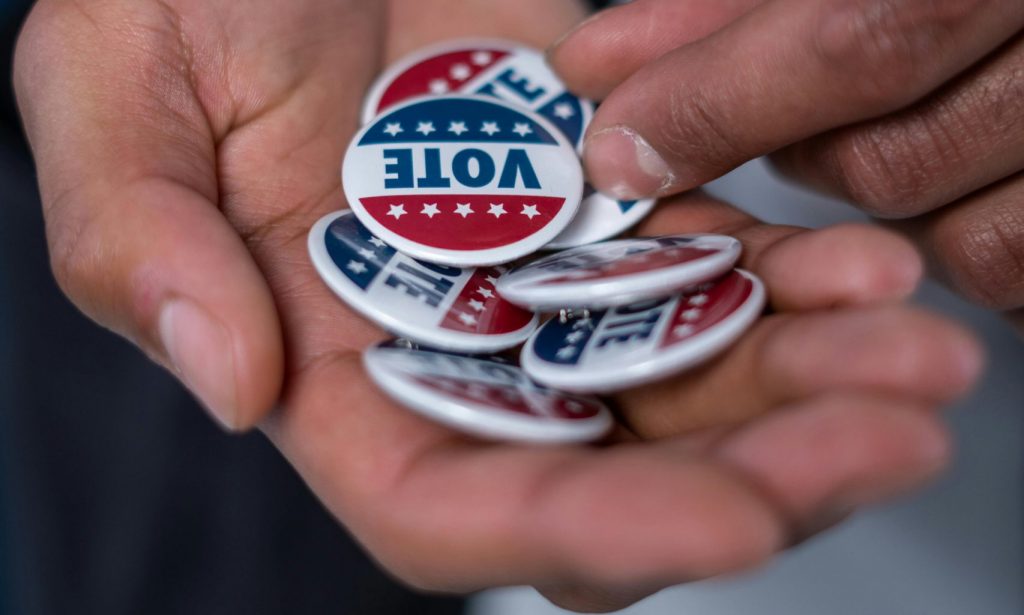Voting: Lesser of Two Evils vs. Lessening Evil: Guest Column

Both sides of the presidential race are (finally) set, and Americans remain historically dissatisfied with both options. Of course, considering the flurry of events of just the last few months, it’s not impossible that something may change yet again. Whether we fall into the category of being so sick of politics already or being unable to look away, every citizen has two choices. First, whether to vote and, second, how to vote.
After his White House days, Chuck Colson never publicly endorsed a political candidate. The Colson Center remains committed to that practice. He did, however, tell Christians to vote, and why. “It’s our duty as citizens of the kingdom of God,” Chuck wrote, citing St. Augustine, “to be the best citizens of the society we live in. To do that, we must vote.”
There are some Christians who disagree, and their hesitation is understandable. Since the Republican Party scrubbed pro-life and pro-family commitments from its platform, voters who prioritize life and family are left to choose between pro-abortion and pro-choice options. The Democratic nominee is the first sitting vice president to visit an abortion clinic, with a vice presidential choice who has aggressively pushed dangerous gender ideology in Minnesota schools. The Republican nominees have each stated that the choice to terminate preborn lives should be left to the states.
Even so, not voting in order to “keep our hands clean” is a form of pietism, not Christianity. James is clear that if there is good that we can do, we should. To not do the good we can is sin. Dietrich Bonhoeffer, even in the face of far worse political realities than ours, rejected pietism as being contrary to Christian responsibility. Because Christianity is an incarnational faith, he wrote, it must be lived in “the tempest of the living.”
But how then should we vote? Often, Christians and other citizens of conscience describe voting as choosing between “the lesser of two evils.” My former colleague Kevin Bywater suggests a better approach.
Christians, he said, should think of voting as a way of “lessening evil.” Not only does this approach better fit the political realities of our particular context, it recognizes the inherent limits of politics even while maintaining principle. Also, voting to lessen evil acknowledges the moral inadequacies of candidates while still seeking to accomplish good through voting.
In the American context, the “lesser of two evils” approach tends to exaggerate the importance of the oval office. “Salvation,” Chuck Colson often said, “will never arrive in Air Force One.” Neither, for that matter, will the apocalypse. On the issues that matter most (such as life and family), state and local races and ballot initiatives are incredibly important, especially now. Voting to lessen evil recognizes these cultural realities.
Of course, the Office of President is important, but more so because of the 3,000-5,000 personnel—especially the unelected, rule-making department heads—that come with each administration. The heads of the Department of Health and Human Services (HHS), the Department of Education (ED), and the Department of Justice (DOJ) have been incredibly consequential in every recent administration, as are judicial nominations. For example, under President Obama, the HHS Secretary forced employers to provide contraceptives and abortifacients to employees free of charge and irrespective of religious beliefs. Without Justices Gorsuch, Kavanaugh, or Coney Barrett there would be no Dobbs ruling. And since Dobbs, there have been all kinds of department-level maneuverings to advance abortion at the state and federal levels. Title IX regulations are interpreted and reinterpreted under each administration by unelected officials that are appointed by the president.
A system that allows unelected officials to hold such power is flawed, as are the candidates who appoint, and the leaders appointed. Voting to lessen evil should never be about excusing bad character. It should be our best attempt to enable the best outcomes possible while recognizing that the most important work the Church will do won’t be political.
Years ago, Chuck Colson observed, “[T]he church has allowed itself to become dangerously polarized into two camps: politicized and privatized views of faith. [N]either view has anything to do with historic Christianity.” To address both these errors, the Colson Center has produced a free video series, Why Vote? Courageous Faith in an Election Year. For a free download, visit colsoncenter.org/why vote.
Christ, not politics, is our hope. He’s called us to engage, to discern, and to the best of our abilities, uphold good and lessen evil.
If you’re a fan of Breakpoint, leave a review on your favorite podcast app. For more resources to live like a Christian in this cultural moment, go to breakpoint.org.
Copyright 2024 by the Colson Center for Christian Worldview. Reprinted from BreakPoint.org with permission.




